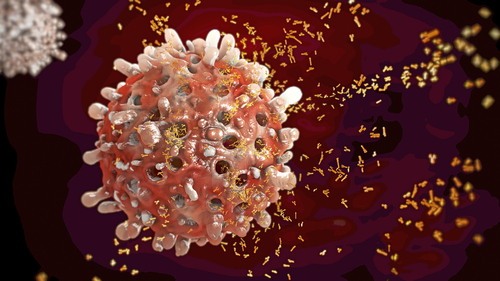Adults with Lupus at Risk for Severe Herpes Simplex Virus Infection, Study Finds

Systemic lupus erythematosus (SLE) patients are a higher risk for severe herpes simplex virus (HSV) infection, but younger age seems to be a protective factor, a study from Taiwan suggests.
The research also highlights that adults (patients older than 18 ), those with a history of herpes infection, those who recently received steroid pulse therapy, and those taking a daily dose of greater than 7.5 mg of oral prednisolone are particularly more susceptible to developing severe HSV infection.
The study, “Risk of severe herpes simplex virus infection in systemic lupus erythematosus: analysis of epidemiology and risk factors analysis in Taiwan,” was published in the journal Annals of Rheumatic Diseases.
SLE, also known as lupus, is a chronic autoimmune disease characterized by the involvement of multiple organ systems. While it is not known exactly why SLE develops, one of its commonly investigated triggers is infection by bacteria or virus.
But people with SLE are known to be more vulnerable to infections due to immune system abnormalitiees as well as treatments that involve immune system suppression (known as immunosuppressants). These medicines can include steroids and disease-modifying anti-rheumatic drugs (DMARDs).
Herpes simplex virus is frequently investigated in SLE patients. While it commonly infects oral and genital areas, more severe forms of HSV can spread to sites that include the eyes, lungs, liver, and gastrointestinal and central nervous system.
These more severe forms spread quickly and are associated with poorer outcomes if not diagnosed and treated on time.
Despite the seriousness of these infections, few studies have examine the association between SLE and HSV, or Additionally, looked at the effect of immunosuppressants on HSV infection in SLE patients.
Researchers in Taiwan conducted a retrospective nationwide cohort study to investigate the incidence and risk factors of severe HSV infections in people with SLE.
They used data on 122,520 people — including 24,504 patients and 98,016 age- and sex-matched healthy controls — from the National Health Insurance Research Database (NHIRD) in Taiwan. Participants’ mean age was 36.3, with most (88%) were female.
Results indicated that more SLE patients develop severe HSV infection (0.5%) compared to controls (0.2%). In fact, the incidence of severe infection was 5.36 per 10,000 person-years among this group, compared to 1.36 per 10,000 person-years among controls. In other words, severe HSV infection was nearly four times more frequent in the lupus group than in healthy individuals.
Next, researchers looked at the SLE group to determine risk factors for severe HSV infection. They found that patients with an early but non-severe infection, those given intravenous steroid pulse therapy, and those receiving a daily oral dose of greater than 7.5 mg of prednisolone were at a 2.3-, 5.3-, and 1.59-times higher risk for developing a severe HSV infection, respectively.
In other words, these were all found to be independent risk factors for severe HSV infection.
Interestingly, pediatric patients — those under 18 years old — were 55% less likely of having a severe infection compared to those who were olde, implying that age was found to be a protective factor.
“Patients with SLE are at higher risk of severe HSV infection, and related risk factors include being older than 18 years, having a history of HSV mucocutaneous infection, recent receipt of steroid pulse therapy and a daily oral dose of steroid over 7.5 mg prednisolone,” the researchers concluded.
They added that “early treatment should be applied to prevent severe complications in patients with SLE undergoing steroid therapy.”






